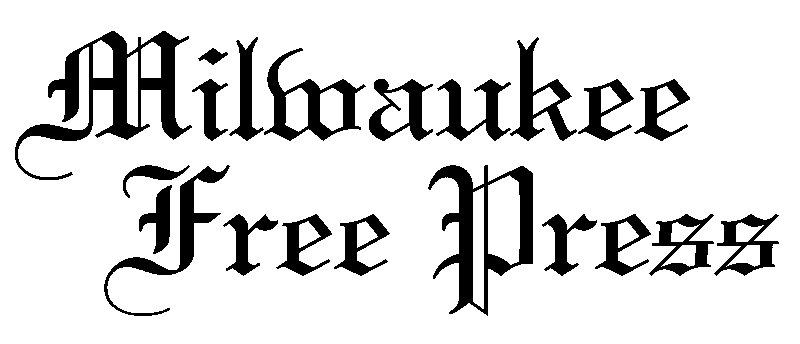I hope everyone had a great Thanksgiving Day! This was an article from the Milwaukee Free Press newspaper of 1910 which told many stories from 19th century papers, a few of which I reproduce here. The Free Press existed from 1901 until about 1918.
Milwaukee Free Press, Thursday, November 24, 1910Thanksgiving Day in Milwaukee for 75 years Told by Newspaper Files
By Lucy E. Strong
Thanksgiving Day is an American institution, distinctively. There is none more American, not excepting the Indian or baseball.
And while baseball may have as firm a hold -almost- upon the nation as has Thanksgiving Day, it has not the dignity which a long, long, long, tried and true affection gives to Thanksgiving Day.
Since 1621, when Governor Bradford of the Massachusetts Bay Colony proclaimed the first Thanksgiving feast, turkeys and pumpkin pies, nuts, apples, mince pies and native wines have been consumed in festive quantities and prayers of thanksgiving have been offered once every year lest the people of this broad land forget the bounteous provision for them by the Father of us all.
The piece de resistance of that first communal celebration of Thanksgiving Day in Plymouth, when all the village gathered about one banquet board, was, perforce, turkey, and wild turkey at that, for no other meat was so easily obtainable. This primitive bird established himself on that occasion, nearly three hundred years ago as the bird of birds for the Thanksgiving feast, and to his barnyard descendants he has bequethed the proud distinction.
But while the custom of giving thanks for the blessings of the year prevailed in the early colonies it did not rapidly spread to other districts of the United States. So late as the 50’s Milwaukee papers are printed without any reference to a Thanksgiving proclamation or celebration and no notice is made of any church services or other events to differentiate the last Thursday of November from other days. But in the past half century the day has become better established as a national holiday with each succeeding observance and now it would be hard indeed to wean this nation from its custom, which has made the day pre-eminently one of family reunions and of pleasures, and although the religious observance is not so generally emphasized as in the past, still congregations of goodly size gather in the different churches.
In the 1860 Thanksgiving newspapers, mention was made of an ovation given Carl Schurz, upon his return to Milwaukee from a political campaign conducted in Indiana, Pennsylvania and New York.A copy of November 27th, 1861 issue of a Milwaukee tri-weekly sheet, puts in agate all of its Thanksgiving “stuff”, which consisted of the proclamation of Governor Alexander W. Randall; everything else was seemingly crowded out by the war stories, given under such heads as “Fort Pickens Opens Fire on the Rebels!” “Bragg Take the Bombardment Coolly!” “Warrington Burned on the First Day!” “The Cause of Blenker’s Resignation Made Known!” “General McClellan Censures Him!” The next succeeding issue prints a front page story of a Thanksgiving function, described as “a public assemblage held in the Newhall house,” at which Judge John F. Potter, who was passing through Milwaukee en route for Washington D.C. to enter congress, made a speech.
In the editorial printed the next year on Thanksgiving, November 27, 1862 a portion reads: “We have two distinctly American holidays, Thanksgiving and July 4th.
“The one calls out universal jollification, shouting, hurrahs and the noise of gunpowder; the other gathers together the scattered members of families to unite in devotion.”
Still no mention of the day being set aside for football or theater is found.
In 1865 the first suggestion of Thanksgiving “sports” crept into the newspaper columns. The paper told the story of a race on the festive day between the tug “Muir” and the tub “Tifft” being respectively the property of Captain Porter and Henry Starkey.
An item in this issue from the “Associated Press reporter” says there is no doubt a law will pass congress enabling heirs of soldiers who died in southern prisons to collect commutations for rations during the time the deceased soldiers were confined in the prisons.”
